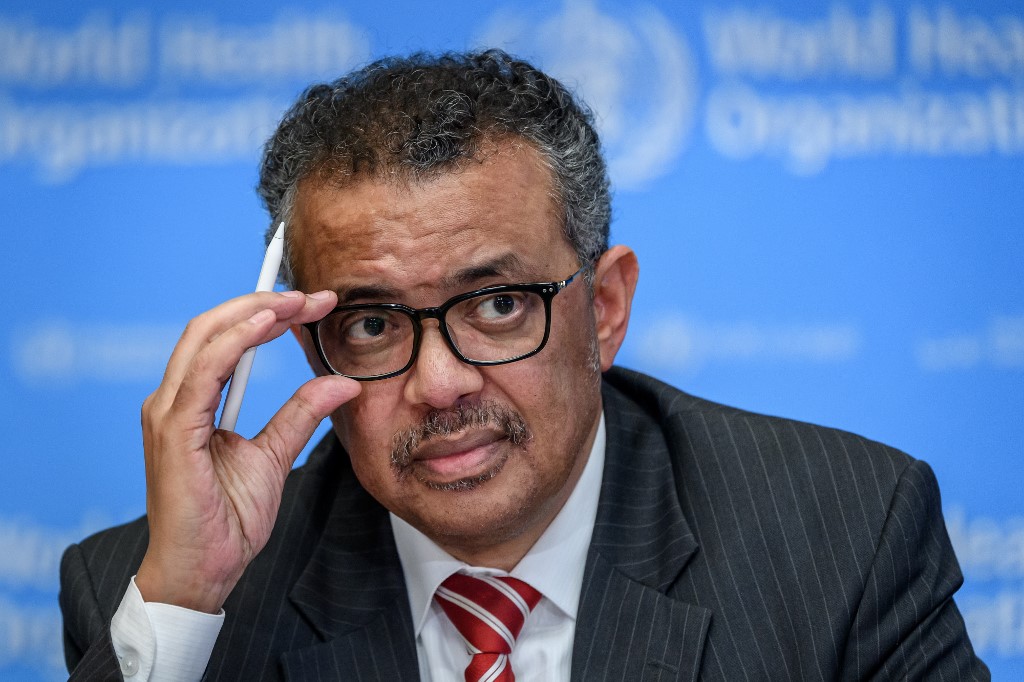The Omicron coronavirus variant is likely to spread internationally and poses a “very high” risk of infection surges across the world, the World Health Organisation (WHO) said on Monday.
Those surges could have “severe consequences” in some areas, it said, as it urged its 194 member states to accelerate vaccination of high-priority groups. Countries should anticipate increased case numbers to “ensure mitigation plans are in place” to maintain essential health services, it said.
“Omicron has an unprecedented number of spike mutations, some of which are concerning for their potential impact on the trajectory of the pandemic,” the WHO said. “The overall global risk related to the new variant …is assessed as very high.”
To date, no deaths linked to Omicron have been reported, it said, but further research was needed to assess Omicron’s potential to escape protection against immunity induced by vaccines and previous infections.
“Increasing cases, regardless of a change in severity, may pose overwhelming demands on healthcare systems and may lead to increased morbidity and mortality,” it said. “The impact on vulnerable populations would be substantial, particularly in countries with low vaccination coverage.”
‘Mild Symptoms’ So Far
But news emerging from southern Africa today looked more positive.
A top South African infectious disease expert said on Monday that existing Covid-19 vaccines are probably effective at preventing severe disease and hospitalisation from the new Omicron variant.
Professor Salim Abdool Karim added at a news conference that it was too early to say whether Omicron led to more severe clinical symptoms than previous variants, although it does appear more transmissable and more likely to infect people who have immunity from vaccination or prior infection.
The discovery of the variant in southern Africa has caused a strong global reaction, with countries limiting travel from the region and imposing other restrictions for fear that it could spread quickly even in vaccinated populations.
However, scientists have yet to determine how deadly it is when compared to earlier strains that cause Covid-19, or what effect existing vaccines might have on the illness it causes.
On Sunday, a South African doctor who was one of the first to suspect a new strain, said Omicron appeared so far to be producing mild symptoms.
South Africa’s government is doing everything possible to prepare its health facilities to cope with the variant, Health Minister Joe Phaahla told the news conference.
Phaahla said officials were engaging with countries that imposed travel restrictions on southern African countries to try to get them reversed.
Steep Rise in Infections
The variant was first reported to WHO on November 24 from South Africa, where infections have risen steeply.
It has since spread around the world, with new cases found in the Netherlands, Denmark, Germany, Italy, Hong Kong and Australia even as more countries imposed travel restrictions to try to seal themselves off.
Japan said on Monday it would close its borders to foreigners, joining Israel in taking the toughest measures.
The WHO, in its latest guidance, reiterated that countries should use a “risk-based approach to adjust international travel measures in a timely manner”. Further advice would be forthcoming, it said.
Meanwhile, outgoing German Chancellor Angela Merkel told the WHO that reliable financing is needed for the agency. She called for a binding international accord to prevent future pandemics.
• Reuters with additional editing by Jim Pollard
This report was updated with new information on November 29.
ALSO SEE:
Parts Of North China Tighten Curbs As Covid-19 Cases Flare Up
Scientists Race to Test Omicron as New Variant Spreads
How Worried Should We Be About The Omicron Variant?
























